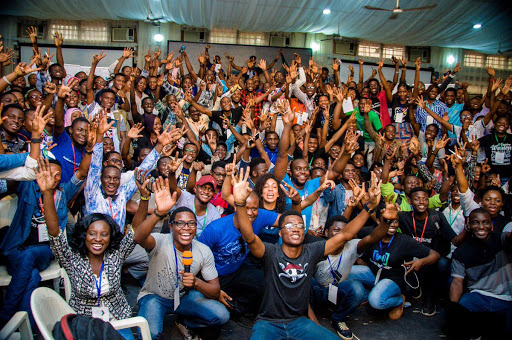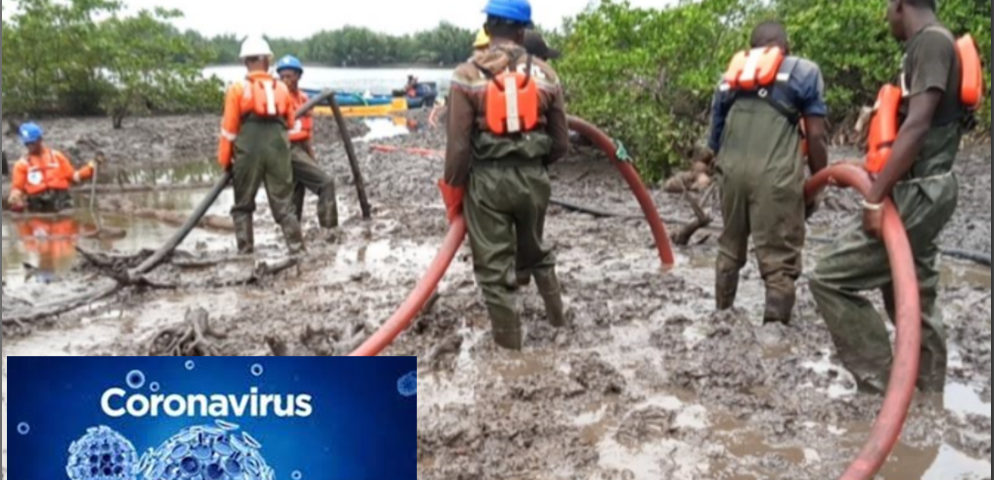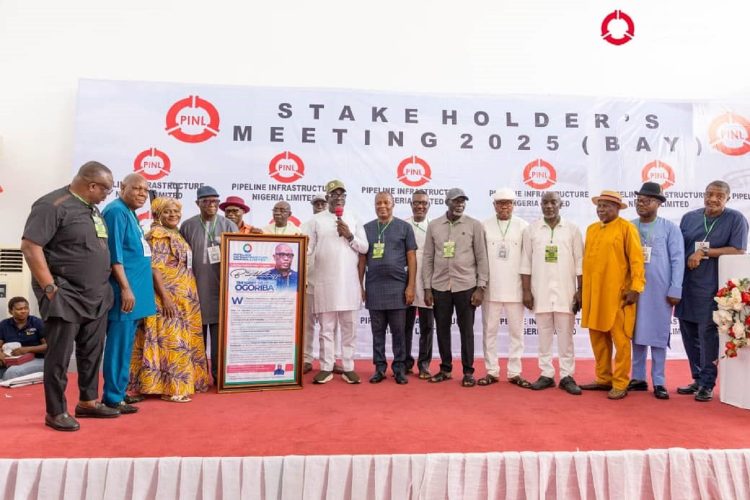
Removal of Nypa Palm Within Bodo Cleanup Work Area
January 12, 2021
[Draft] Rivers State Youth Policy, 2020-2024
January 14, 2021
By: Bariton Lezabbey
It’s no more a piece of breaking news how the pandemic has disrupted the world’s economy, by increasing the rate of unemployment due to job loss, and deepening poverty and hunger in countries; with the worse hit on under-developed and developing economies. The coronavirus disease (COVID-19) pandemic has infected more than 63.8 million people across the world and has a global mortality rate of over 1.45 million according to the World Health Organization (WHO). To curb the spread and prevent community transmission of the virus in Nigeria, the Nigeria Centre for Disease Control (NCDC) declared safety measures for all citizens to observe, which include, maintaining social and physical distancing, and wearing protective gears among others. To further implement these guidelines, a sit-at-home order was sanctioned by both the Federal and various State Governments in the country.
In compliance to the NCDC guidelines, the Bodo Mediation Initiative (BMI) temporarily suspended the Bodo cleanup project on Saturday 28, March 2020 after a unanimous agreement by key stakeholders on the project. Prior to the suspension, the project was in its fifth month of active remediation activities, since it officially started on Monday 11, November 2019. About 11 percent of the approximately 1000 hectares of work area has been completed, only awaiting soil chemistry verification which is the final stage of closing out a grid (a work area of about 200 by 200 meters expanse). But for the emergency shutdown, this percentage of the completed work area would have ordinarily increased or near double given the improved remediation technology deployed by the four major oil spill companies.
The COVID-19 pandemic which has caused severe economic bite on the people, was a cogwheel to the cleanup process in diverse ways which include but not limited to the following:
Interruption on the outcome of the mediation process:
Over 7 years has been expended on mediating between the Bodo community and the Shell Petroleum Development Company of Nigeria Ltd. (SPDC). Before the lockdown, the project was progressing smoothly with active cleanup activities going on within the creeks and mudflats in Bodo, with various aspects of the project getting set to be activated, as both parties were finalizing terms on various components especially the corporate social responsibility funds. With the outbreak of the coronavirus pandemic, restarting the project required much more than a push-button on an electronic device. This has inadvertently interrupted some key deliverables of the mediation process.
Increased poverty and hunger due to job loss:
The Phase 2 Bodo cleanup project has about 1000 community workers directly engaged by the various remediation companies. These community workers were adequately trained to International Maritime Organization (IMO) levels 1 & 2. As a result of the COVID-19 outbreak, a force majeure was declared, compelling the companies to temporarily release over 800 community workers to go home for their safety pending the ease of the lockdown imposed by State and Federal Governments. By implication, about 800 households loss their means of livelihood, having been victims of this temporal job loss. Few of these workers who resorted to fishing and farming did so just for the sustenanace of their households to cater for the next meal.
Speaking to some of the community youths who were working on the project before the outbreak, they shared their thoughts while expressing unhappiness, and explained how their livelihood was affected by the shutdown of cleanup activities. Some of their statements were as follows:
“I am a graduate of Petroleum Engineering, and I worked on phase 2 Bodo cleanup as a team supervisor with one of the major remediation contractors. Currently, it’s very hard to feed and there are no jobs out there. This was the only job through which I support my family and sustain myself, but with the current situation, it’s been quite difficult, and we don’t even know when the project will restart”. ~Anonymous.
Mr. Emmanuel Kpai, a former student leader in Bodo said, “No doubt, the cleanup project was a major source of livelihood to the Bodo people. With the coronavirus pandemic and shutdown of the cleanup, my income has been gravely affected, even my rental service business is not so much in high demand given orders against events such as weddings and other outdoor events within the states in Nigeria. I am, however, optimistic that with the gradual easing of the strict lockdown rules, the Bodo cleanup will resume soon, and we will continue from where we stopped”.
Disruption of project timeline and deliverables:
The phase 2 Bodo cleanup project was initially proposed for a minimum duration of 18 months and a maximum of 24 months. With the outbreak of the COVID-19 pandemic, the project timeline has been reviewed to reflect recent realities. This will obviously have financial implication on SPDC who is funding the cleanup project. Preparation for the second batch of 800 community workers was underway, as they were getting set to undergo the various level of verification, including medical fitness and swim test. This too had to be stalled so as not to breach the safety protocols and guidelines of NCDC.
In conclusion, the BMI is committed to the successful implementation of the Bodo cleanup and remediation project. The project is implemented by both experienced expats in oil spill response and management, and well-trained and certified locals from the community, and it’s done following international best practices. This is anticipated to be a model for other Niger Delta coastal communities which have had to contend with issues of oil spill related environmental degradation.
The phase 2 Bodo cleanup Project has finally restarted on November 2, 2020. It will further provide both professional and technical drills, as well as job opportunities to over 2400 community youths within the life of the project. All the workers will undergo rigorous and standardized trainings which will have them certified and fit to work anywhere else in the world.









